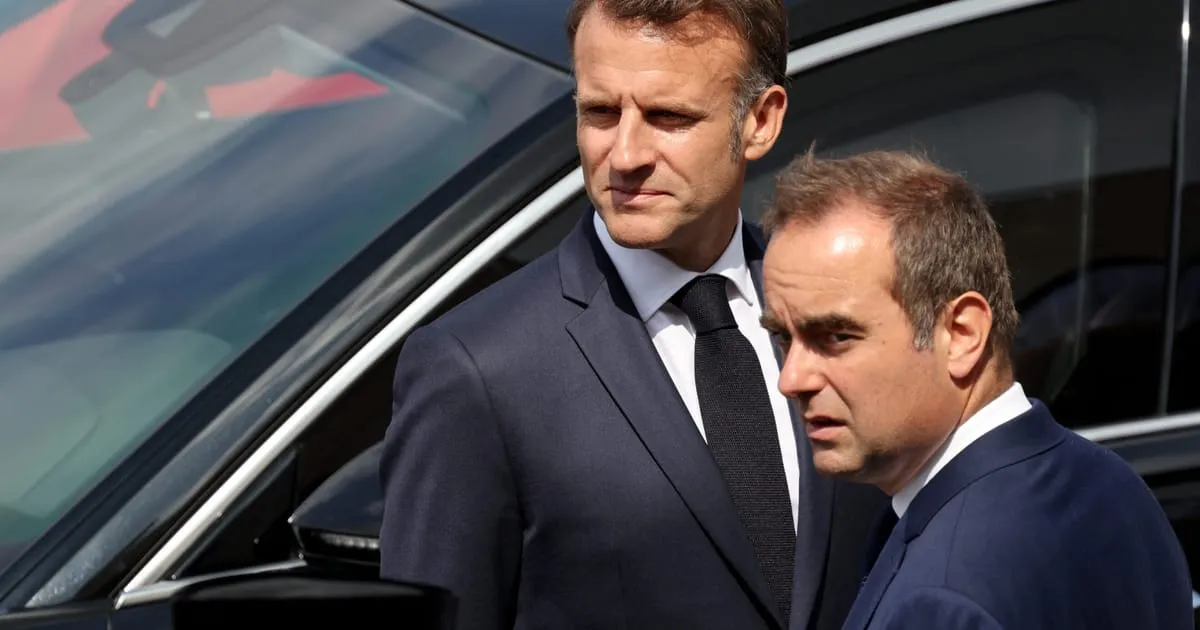
The political crisis engulfing France has taken an unexpectedly dramatic turn, resembling a scene from the theater of the absurd. On Monday morning, President Emmanuel Macron accepted the resignation of Prime Minister Sébastien Lecornu, who served a mere 27 days in office. The situation became even more chaotic when his ministers resigned just 14 hours later. By the evening, in a surprising twist, Macron tasked Lecornu with leading discussions with the opposition to seek a compromise amidst a crisis that is shaking the foundations of the French markets and the euro.
In a bid to stabilize the situation, Macron granted Lecornu one last opportunity to create a "platform of action and stability" by Wednesday evening. This decision came at the end of a tumultuous day during which Macron made no public statements but was seen walking alone along the banks of the Seine, appearing contemplative about the future of France. Unfortunately, the outcome of his reflections appears bleak, with the opposition parties quick to criticize the president's latest maneuver. Green lawmaker Sandrine Rousseau remarked, "Let’s move on. They are just trying to buy time; it’s ridiculous, it’s melodrama. Let’s stop this." Similarly, Agnès Evren, a senator and spokesperson for the conservative Les Républicains, lamented, "Trust is broken."
Never before has President Macron seemed so isolated and beleaguered, with the stakes for France’s economy—and the wider European Union—reaching unprecedented heights. The inability of French politicians to enact the necessary budget cuts threatens to destabilize international markets, putting pressure on the EU’s second-largest economy. With billions of euros in cuts still unaddressed, the potential for economic turmoil looms large.
If Macron's attempt to salvage Lecornu's government is genuinely a last-ditch effort, it underscores the lack of viable alternatives. Should Lecornu fail to broker a deal by Wednesday, Macron "will face up to his responsibilities," according to sources close to him, which could lead to snap elections. Even members of his own party harbor doubts that he can dodge early elections, which could further weaken his position. A former official candidly stated, "He has played his last card" with Lecornu, especially after the ousting of previous governments led by EU veteran Michel Barnier and close ally François Bayrou in the past year.
Political discussions are currently swirling around the possible appointment of a new prime minister, whether from the left, the right, or even a technocrat. However, regardless of the political affiliation of the new leader, they would confront the same challenging parliamentary arithmetic and budget negotiations. Political scientist Jean-Yves Dormagen asserted, "It’s difficult to imagine a way out of the crisis without a vote," but cautioned that a snap parliamentary election would likely leave Macron’s centrists weakened while empowering the conservative Les Républicains and the far-right National Rally.
During the tumultuous events of Monday, former Economy Minister Bruno Le Maire announced he would not return to the government, a decision that might open avenues for negotiations with conservative factions. However, Les Républicains are unlikely to support the government without demanding significant concessions. Agnès Evren from Les Républicains stated, "Not even Bruno Le Maire’s departure will change anything."
As the crisis unfolds, the day of reckoning for President Macron appears imminent, with his once-supportive allies increasingly turning their backs on him. Former Prime Minister Gabriel Attal publicly expressed confusion over Macron's decisions, signaling a growing rift within the president's inner circle. On Sunday evening, Hervé Marseille, a centrist ally in the French Senate, also distanced himself from Macron, citing feelings of being sidelined in recent weeks. The sentiment within Macron's camp is one of "anger and disappointment," paving the way for an uncertain future.